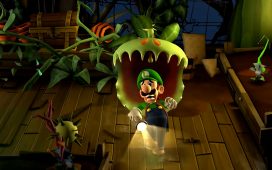Ask Michael Douglas — a man who’s played cops, college professors, drug czars, tech entrepreneurs, ex-pat adventurers, superhero scientists, an American President and Liberace — if he has a favorite role, and you can see the gears whirling behind the 75-year-old’s eyes. “Well, the pricks are the best roles,” he finally says. “You know, my dad played a bunch of sensitive guys early in his career. Then he plays a prick, and he wins an Oscar!”
You could say that he’s followed in his famous father’s footsteps, given he also took home an Academy Award for playing a bad guy in Wall Street (his other Oscar to date came from producing One Flew Over the Cuckoo’s Nest back in 1975). A lot of his best-known parts, from the adulterous husband in Fatal Attraction (1986) to the pot-smoking writer stuck in a rut in Wonder Boys (2000), are men who have more than their fair share of flaws. There’s a reason, however, that Douglas’ fanbase isn’t just financial douche-bros who quote Gordon Gekko-isms back at him (more on those guys in a bit). For decades, he’s been a constant on small and big screens, one of those performers who keeps blurring the line between actor and movie star regardless of who he’s playing. Douglas is great at humanizing charming rogues and alpha-male jerks, but look at his long filmography, and you’ll find the funny, the tragic, the heartfelt, the sorrow and the pity. There’s a Michael Douglas for all seasons.
And with The Kominsky Method, he’s found a way to both poke fun at his screen persona and play the sort of comic lion-in-winter co-lead most performers would kill for. As Sandy Kominsky, an acting teacher dealing with aging, mortality and late-in-life romance, Douglas gets to trade quips with Alan Arkin’s cantankerous agent and indulge in finding the “comedy [in] getting older, which can be depressing.” He’s like a kinder, gentler version of the “pricks” Douglas gravitated to when he was in his thirties, which may be why he was nominated for an Emmy and won a Golden Globe after the Netflix show’s first season. (The second season dropped on the streaming service in October.)
For Rolling Stone‘s “Last Word” interview, Douglas talked about his “no assholes” rule on set, what he once told a gentleman who yelled Wall Street dialogue at him, how his recent health scare factored into Kominsky, what he learned from his dad about show business and the moment he felt like he was a “legitimate” actor.
What’s the best advice you’ve ever been given?
Know that when you walk away from something, you gave it your best. And then: Fuck it. Just keep moving on and say, “Fuck it.”
What’s the most important rule you live by?
No dickheads. You see them a lot in our business, actually. You know, when you’re number one on a call sheet, you set a tone on the set. If you’re late to the set, other people will be late. If you’re an asshole, other people will be assholes. You work with talented people who are nice to work with. And then there are talented people who are dickheads. So as I’ve gotten older, my rule now is: No dickheads. Don’t need ’em. Don’t have time for ’em.
Given that you’ve played both the personification of 1980s greed (Wall Street) and white male rage (Falling Down), do you feel like you have insight into what’s going on in our country right now?
Interesting. I don’t know if have any insight, but I certainly recognize that part of the reason I wanted to do those movies in the first place was that they were articulating things I’d been thinking about. I’ve been a big news junkie since college, and those were both films where you read the script and you go, “Oh, this is really good. It’s about something going on right now. And it’s entertaining.”
But you know, you never make movies because you’re trying make a statement. Even something like The China Syndrome — I just thought, this is great contemporary horror movie. It was a worse-case scenario. People gave us a huge amount of shit: “Oh, the Hollywood arrogance.” I never anticipated that something like Three Mile Island would happen. It came out 10 days before the accident. Suddenly, the conversation went from “Who do these fucking hippie Hollywood royalty types think they are?!” to “How did you predict this?”
Is there a piece of music that moves you, no matter how many times you hear it?
Oh yeah! The Paul Butterfield Blues Band, East-West. Janis Joplin’s version of “Summertime” — every time I hear it, it sounds like both the first time she’d ever sang it, and that it’s the last time she’ll ever sing it. I’m amazed at how ’60s, ’70s music has held up…I’ve got a 19-year-old and a 16-year-old, and I’m so impressed by how much they like the old music.
Oh, there’s this French group, they always tour here, called Caravan Palace. And what’s her name…Billie Eilish?
You like Billie Eilish?!
My 16-year-old daughter is a big fan of hers. She’s really impressive. What’s that one song? [Hums melody to “Bad Guy”] I like her. Great stuff.
What’s the most indulgent purchase you’ve ever made?
Probably, it was a few years ago, [a] time-share in a jet. It allowed the luxury to fly private. I stopped that. Just very expensive. But that was a great luxury, I must say. I enjoyed it.
What do you do to relax?
I watch a lot of sports. Movies, you always guess the ending. Sports — you never know how it’s going to end. That’s exciting. I’ll watch anything, but I love football. I’m big Jets fan.
My condolences.
Yes. Thank you.
What advice would you give your younger self?
Cherish the moment. We’re always rushing ambition, as it’s rushing ahead. My son is a sophomore in college now. He wants to be an actor. [He] asked, “Do I [need to] have an agent?” Just calm down. Enjoy school, man. School’s the best time you’re ever going to have. This career is . . . don’t worry about it. Just enjoy that girl in front of you.
When you were in school, you weren’t planning to become an actor, right?
Yeah. I had to get a major in college when I was a junior, so I thought, “Well, what about theater? Mom’s an actress, Dad’s an actor.” I thought it would be easy. You know, I didn’t know what else to do. I had terrible stage fright when I first started performing.
You’ve said that your dad told you that you were an awful actor at first.
He did, and he was right! It was in those early college productions. I started getting a little better, but I had a long way to go.
So at what point did you start to feel like, “Hey, I may actually be a legitimate actor”?
Where I actually felt like I had something to offer? That would have to be the year of Fatal Attraction and Wall Street . . . around 1986, 1987. Up until then, I still dealt with nerves in front of a camera. I felt I was competent; I did 104 hours of a TV show [The Streets of San Francisco]! But I couldn’t tell you that I was really enjoying the process or that people were benefiting from what I was doing.
So it was the commercial success of Fatal Attraction that gave me the confirmation that “OK, you’re there now.” I think when you come from the second generation, and you don’t have that rags-to-riches story, your arc is a little smaller. It takes you longer to figure out who you are. The assumption is that everything is laid out for you. And the reality is that, in an industry all about establishing your own identity, you’re being judged against your father’s persona.
You’re being judged against Spartacus.
[Laughs] You’re being judged against the guy from Champion. Which, you know, he’d begun his career playing sensitive young men before he got that role. He played a prick for the first time and gets nominated for an Oscar.
You won an Oscar for playing a prick [in Wall Street]!
Yeah. Those are the roles that always pay off.
Do you still get people coming up to you in the street, quoting Wall Street lines 30 years later?
It’s Wall Street, The Game and Falling Down — those are the predominant ones I still get. A guy stopped me in the street recently, told me, “Hey, I got a buddy, he told me that he came up to you years ago and said, ‘Hey, Blue Horseshoe Loves Anacott Steel!’ And you turned to him and said, ‘Don’t you have a more fucking original line than that?!’”
Did you say that to him?
Oh, yeah. [Laughs] I remember saying that to him.
The Kominsky Method is a comedy, but it confronts aging and illness in a very candid way. Having been through your own health scare, was that part of what drew you to the show?
I didn’t think it was. The writing was just so good. And I said, “Well, this is fabulous. I mean, a comedy about getting older? Where do I sign up?” Everything else is so depressing about getting older. I wasn’t consciously aware [that] my cancer [played a part in drawing me to the role], but it became part of the package, because it was part of my life.














